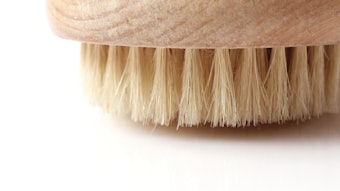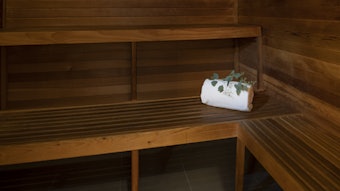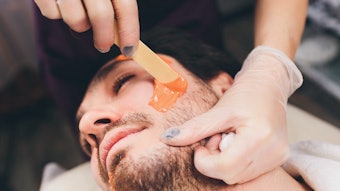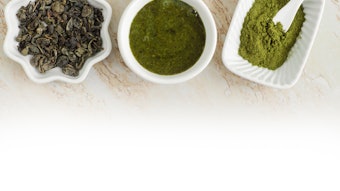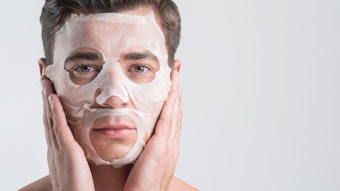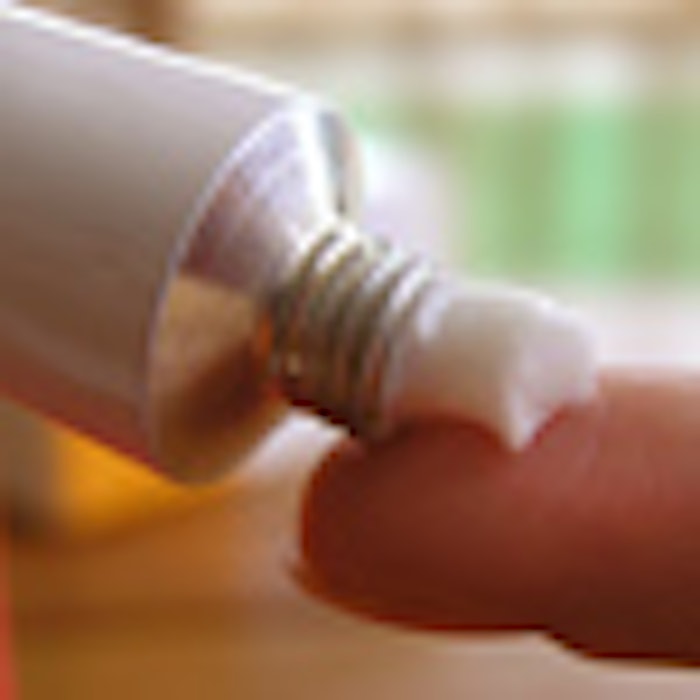
Editor's note: If your clients who suffer from eczema are using emollient creams for relief, consider offering them an alternative solution. Read this article to find out why emollient creams may not work for eczema.
New research at the University of Bath suggests that using emollient creams to relieve the symptoms of eczema could actually make the condition worse. The researchers, from the University's Department of Pharmacy & Pharmacology, have published a study in the British Journal of Dermatology showing that aqueous cream BP reduces the thickness of healthy skin over a period of four weeks, calling into question whether the cream should be used for treating eczema.
Originally used as a wash product, aqueous cream BP is currently a widely prescribed emollient for the treatment of dry skin conditions. It is used to moisturize the skin, improving flexibility and preventing cracking in the protective outer layer, called the stratum corneum. However, the cream contains a detergent, called sodium lauryl sulphate (SLS), which can increase the permeability of the skin barrier and cause irritation.
The study found that when healthy volunteers applied the cream to their forearms daily for a period of four weeks, the thickness of the stratum corneum was reduced by more than 10%. The researchers anticipate that using this cream would have an even more dramatic effect on damaged skin such as that found in eczema.
Richard Guy, professor of pharmaceutical sciences at the University and Project Supervisor, explained, "The skin has a protective barrier layer of lipids, around one eighth the thickness of a sheet of paper, that stops chemicals from getting into the body and keeps moisture in. SLS is a detergent used to mix oils into water-based moisturization creams to give a nice creamy texture. It's also used widely in shower gels and other cosmetics. Our study has found that rubbing aqueous cream containing SLS into the skin thins this protective barrier, making the skin more susceptible to irritation by chemicals. So to use this cream on eczemous skin, which is already thin and vulnerable to irritation, is likely to make the condition even worse."
Postgraduate researcher Manda Tsang worked on the project as part of her PhD CASE studentship funded by the Biotechnology & Biological Sciences Research Council with York Pharma Plc. Tsang said, "Eczema affects around 30% of the population, an increase from around 5% a generation ago. This is due to a combination of genetic and environmental factors, such as central heating and carpets that can encourage dust mites, and using more creams and cosmetics that can thin the skin if used too frequently. Our study suggests that it might be better for eczema patients to use oil-based ointments on damaged skin."
Story source: The above story is reprinted (with editorial adaptations by ScienceDaily staff) from materials provided by University of Bath.
Journal reference:
1. M. Tsang, R.H. Guy. Effect of Aqueous Cream BP on human stratum corneum in vivo. British Journal of Dermatology, 2010; DOI: 10.1111/j.1365-2133.2010.09954.x




